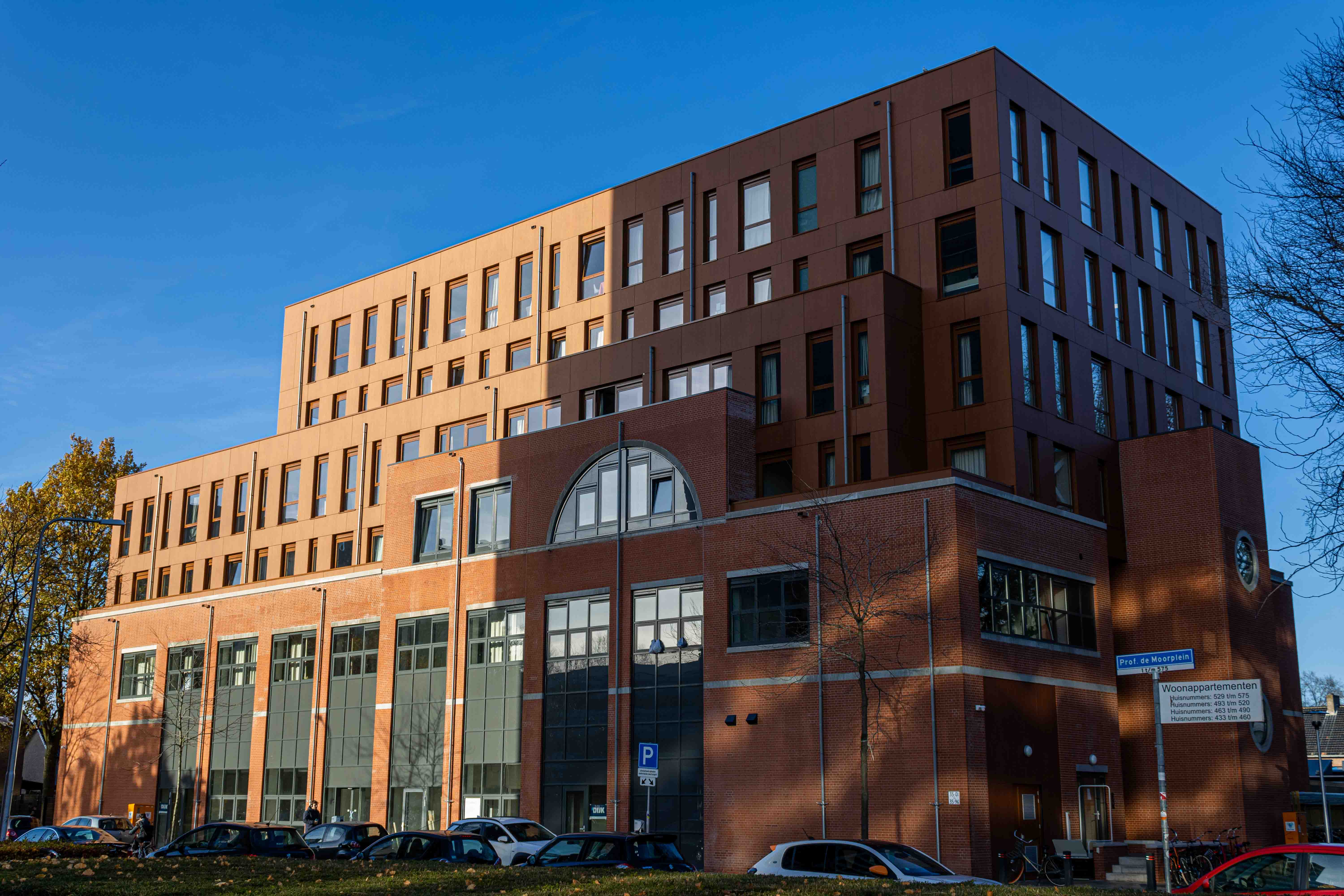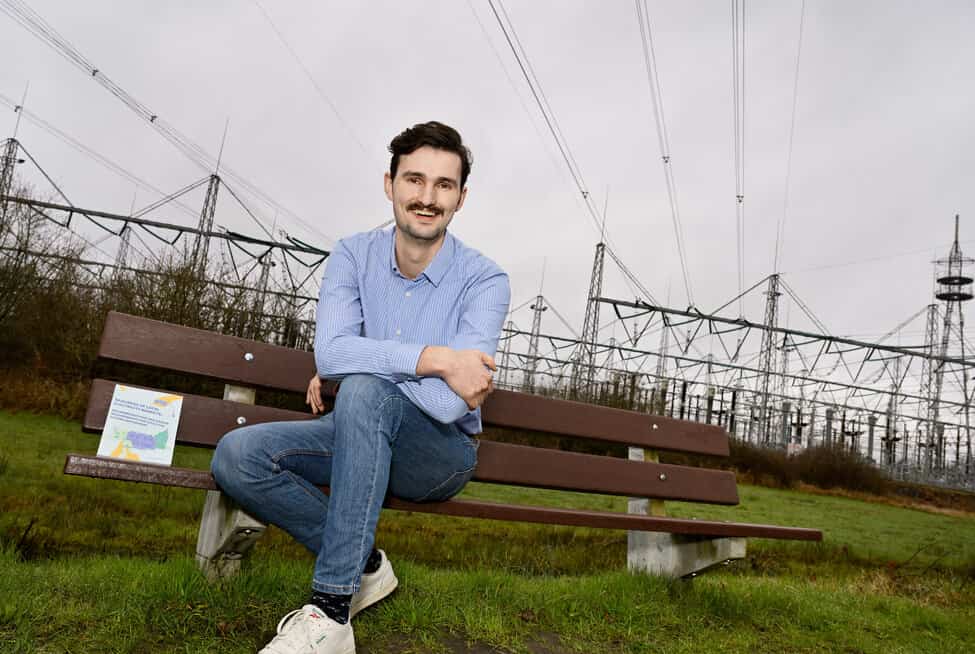
There are times when you all of a sudden need a lot of energy. E.g., on a ship or on a construction site. But the place you’re in is so remote, you can’t access the power grid. Now Mobiele Stroom BV and its units can supply you with sustainable energy. A customer can opt for a specific fuel depending on their requirements. Without having to convert their generator to that purpose. Leen Schipper, founder of this family business from Maarssen, explains why the poly-energy system from Mobiele Stroom is so convenient.
How did the idea for Mobile Power come about?
“The idea actually stems from the shipping industry. It was meant to supply energy to inland vessels in places where there is no fixed onshore power available at present. However, the units we work with are also suitable for other applications. We supply both refrigeration and heating. So, we make sure that the beer stays at the right temperature as well as provide heating for the festival tents. Or take an ice rink, for example. These also requires electricity to freeze the ice layer and to heat the premises. The Corona crisis has brought these uses to a standstill. But that will also pass in due time.”
What exactly are your core business activities?
“As mentioned earlier, our units supply energy wherever there is a temporary demand for green power. In principle, our units run on clean LNG. This biofuel is cleaner than regular diesel. But it isn’t more expensive. We can use a variety of different fuels in the units without having to modify the engine. The best thing, of course, is to use the cleanest possible fuel. What you don’t put in, doesn’t come out either.
LNG, for example, contains very few residues such as nitrogen. The use of bio LNG (liquefied natural gas from waste and other recycling sources) or bio CNG (compressed natural gas from the same sources) results in low emissions. Emissions of nitrogen oxide are minimal and free of CO2. Customer units are made to measure.
In addition to being sustainable, our units are also quiet, safe and have an output of up to 65 %. Energy is generated by a turbine. The advantage of using this technique is that you don’t have to bother with the noise from a combustion engine. There’s also no methane sludge, which is a residual product of natural gas combustion.”
What distinguishes Mobile Power from its competitors?
“Since we have various types of biofuels at our disposal, we can use a compatible fuel on the basis of what the customer wants. Each type has its advantages and disadvantages. Bio LNG has the advantage that both cold and warm temperatures can be recovered. That leads to a high degree of efficiency. The disadvantage is that the liquid heats up and consequently can’t be stored over a longer period of time. The added advantage of bio CN is that it is a pressurized product and therefore can be stored for a long time. With high-pressure fuels you do have to handle heavy storage tanks. That in turn means a lot of weight for a relatively small amount of fuel.”

“We can also use biomethanol, that’s pressure-free. The shape of the tank does not play a major role in that respect. The disadvantage is that it produces only a small amount of energy per used liter. So you need to have a lot of this product. There is also bioethanol. It is pressure-free and has an energy content equal to LNG. It is a pity that aldehydes such as formaldehyde (carcinogenic, ed.) are produced during combustion. This also applies to methanol. Or take hydrogen as an example. That’s clean. But it is stored at an even higher pressure than CNG. So then you need even heavier tanks.
These are just some of the fuels that we have. A customer’s situation determines which fuel is the best suited for their needs. The competition relies much more on a single energy source, such as solar energy. They then adapt that more or less to the customer’s requirements. At a music festival you can only use solar energy if there are batteries available for the evening which have stored daytime energy. I believe that you should use those types 0f systems in situations where the energy source works optimally and directly.”
How have the reactions been so far?
“In general, very positive. People really do understand the advantages it has to offer. Construction companies see it as an opportunity to work as green as they can. For example, we recently spoke to an Amsterdam delegation who sighed: ‘if only we’d known that.'”
What has been the most challenging for you since you started out?
“This is the next step, from positive reactions to actual action on the part of interested parties. We’ve been working on it for a couple of years now. But it’s proving difficult to actually persuade potential customers to work with our product. They don’t want to take any risks. As a company, you have to be very good technically, good in terms of organization, have the marketing up to scratch and have ‘deep pockets’ in order to keep going in the run-up to success. For example, our marketing isn’t up to speed quite yet. As a start-up, we lack the necessary clout.”
What successes have you booked?
“We now have two units, 30 kW and 65 kW, which have already supplied energy at various locations. In addition, we supplied onshore energy throughout February as part of a pilot project in Rotterdam. We were one of the five companies that were asked to do so. We were approached, out of all the major competitors.”
What’s in the offing for the upcoming period?
“As the corona crisis unfolds, we are providing six charging stations for electric cars on a construction site. And also mobile containers for energy on board.”
Where will Mobile Power be five years from now?
“Chances are that we will have become so pesky for a large party that we will be taken over. Or we could become a relevant company on the generator market, accounting for around 10% of the total supply.”
You can read more IO articles about start-ups here.







